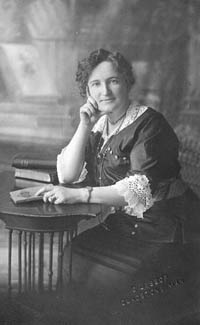Women's and Gender Studies

“What each of us needs to do about what we don't know is to go look for it.”
— Feminist poet, playwright and activist Cherrie Moraga
You should consider a minor in Women’s & Gender Studies if:
- You want to learn how to ask complex questions about social and political power hierarchies.
- You’re interested in the historical, social, cultural and political forces that shape people’s lives.
- You love to learn.
- You’re curious about how things that seem “normal” and “natural” got to be that way.
- You want to explore the roles of women and men in society within both historical and contemporary contexts and from multicultural and multiracial perspectives.
- You see social problems all around you and want to learn the skills that will enable you to solve them
Women’s & Gender Studies courses ask how things that seem “normal” and “natural” got to be that way.
- Women's & Gender Studies Courses ask questions about power: Who has it? Why? Under what circumstances? Who benefits? Who Doesn't?
- Women’s & Gender Studies courses are intersectional; they make the invisible visible by focusing explicitly on the dynamic experiences and concerns of those groups of people are marginalized based on a variety of identities, including (but not limited to): sex, gender identity, sexual orientation, age, skin color, immigration status, ability, religion, and socio-economic status.
- Women’s & Gender Studies courses are interdisciplinary; we use any and all appropriate and relevant methods, approaches and perspectives from across the fine arts, social sciences, humanities, and biological sciences.
- Women’s & Gender Studies courses are transnational, which means that they endeavor to connect the local to the global by putting Calgary, Alberta and Canada within a global context.
- Women’s & Gender Studies courses are learner-centred; professors are committed to a critical teaching style that challenges students to, in the words of feminist poet and theorist Adrienne Rich, claim their education.
The Women’s & Gender Studies Program and faculty here at MRU strive to mobilize the revolutionary potential of Women’s & Gender Studies to achieve social justice by helping students to start thinking about how they can use what they’re learning to change the world. The field of Women’s & Gender Studies began in the 1970s, and today, most universities throughout North America offer Women’s & Gender Studies courses and degrees. The professional association for Women’s Studies in Canada is called the Canadian Women’s Studies Association.
What Can You Do With a Minor in Women’s & Gender Studies?
 Me
Me
- Because Women’s & Gender Studies is interdisciplinary, it serves as excellent preparation for careers in research, education and librarianship—careers that require expertise in finding and using information on contemporary social issues.
- The knowledge about power relationships and injustice that Women’s Gender Studies students gain often leads to careers in government and politics or academia, due to a drive to utilize their knowledge to change the world in positive, life-affirming ways.
- Because Women’s & Gender Studies courses emphasize understanding differences and discovering the multiple intersections among racism, sexism, heterosexism and homophobia, classism, and other forms of oppression, minors are also suited to enter policy and lobbying organizations, research centers, trade and international associations, and union/labor organizing
- The integration of race, class, and gender issues provides a strong preparation for advanced graduate degrees.
- Minors are also well prepared to enter the medical professions, where their expanded insight and sensitivity to social concerns provides a deeper connection to their patients and their mission.
For more information, please contact the WGST@MRU Program Coordinator, Professor Kimberly A. Williams at kawilliams@mtroyal.ca.

